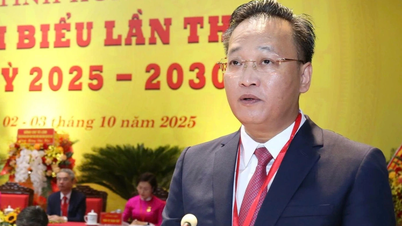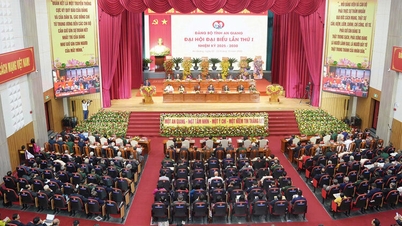The controlled testing mechanism in banking operations is expected to become a driving force for innovation, financial universalization in a transparent, safe and reasonable cost. This mechanism not only opens up space for testing Fintech solutions in a closely supervised environment, but also helps to comprehensively assess the risks, benefits and suitability of the product to market needs as well as current legal regulations. Thereby, contributing to protecting users' rights and limiting risks in the process of accessing Fintech services. In particular, the testing results will be an important practical basis for management agencies in perfecting the legal framework, towards developing a safe, effective and sustainable digital financial market.
According to regulations, the testing of Fintech solutions is limited to the territory of Vietnam, and cross-border testing is not allowed. The maximum testing period for Fintech solutions is 2 years, depending on the specific solution and field, from the time the State Bank issues a certificate to participate in the testing mechanism.
Decree 94 clearly stipulates the conditions and criteria for participating in the testing mechanism for Fintech solutions. Accordingly, credit institutions and foreign bank branches can be granted a certificate of participation in the testing mechanism. Along with that, Vietnamese Fintech companies can also participate in the mechanism when meeting the following conditions: No foreign investment capital, legal representative is a Vietnamese citizen, has at least 2 years of management experience in the financial and banking sector; technology system located in Vietnam, ensuring safety, security, technical backup and being tested before operation.
In particular, Decree 94 also clearly stipulates the criteria for testing the implementation of peer-to-peer lending (P2P Lending). The State Bank will monitor participating organizations to evaluate the testing activities and related Fintech solutions.
Assessing the impact of Decree 94, experts believe that both banks and Fintech companies will clearly identify new challenges and opportunities. For banks, although facing increasing competitive pressure, especially in the retail credit segment when peer-to-peer lending is tested, this is also a time for strategic repositioning. The gradual loss of monopoly can become a push forcing banks to accelerate transformation towards the open banking model, actively integrate APIs and cooperate more deeply with Fintech to optimize the value chain. In particular, technology platforms with the ability to score credit and analyze consumer behavior will help banks improve the quality of credit risk assessment, especially with non-traditional customers - a group that is increasingly making up a large proportion of the digital economy .
As for Fintech companies, it is clear that there will be opportunities for a new space for innovative financial services. Many companies from the “legal gray area” will have their business models legalized, their ability to mobilize capital and attract talent will be enhanced. However, Fintech companies also need to be prepared in terms of resources, management capabilities, etc. to be able to deploy their operations effectively.
As for peer-to-peer lending, this model has appeared in Vietnam for many years, but only now has an official testing mechanism to manage and orient development. Associate Professor, Dr. Nguyen Huu Huan, University of Economics Ho Chi Minh City, commented that in reality, the peer-to-peer lending model has developed for a long time in the world . Although Vietnam has begun to build and deploy a testing legal framework at this time, although it is a bit late, it is a necessary step to avoid falling behind. Especially in the context of rapidly changing financial technology, the legal framework must also be updated promptly to create a safe and sustainable development environment for new models.
The early completion of the legal framework for P2P Lending is an urgent requirement in the context of the Vietnamese credit market still having many shortcomings, especially the situation of black credit, high bad debt and low debt repayment awareness. Many lending applications have now transformed and hidden under the guise of black credit due to the lack of a clear legal corridor. Therefore, according to experts, for the testing mechanism to be effective, it is necessary to have specific regulations on interest rate ceilings, transaction procedures and the development of a personal credit rating system, thereby contributing to promoting a transparent and sustainable credit environment.
Along with perfecting the legal framework, experts also emphasized the importance of financial education and communication for P2P Lending to develop sustainably. “To protect people and improve the effectiveness of the Sandbox mechanism, it is necessary to soon promote propaganda programs on new forms of finance such as P2P Lending, digital finance and open data. Raising awareness will be a key factor to help the market develop healthily and in the right direction,” an expert recommended.
Source: https://thoibaonganhang.vn/sandbox-mo-duong-cho-cac-dich-vu-tai-chinh-moi-164076.html



![[Photo] Binh Trieu 1 Bridge has been completed, raised by 1.1m, and will open to traffic at the end of November.](https://vphoto.vietnam.vn/thumb/1200x675/vietnam/resource/IMAGE/2025/10/2/a6549e2a3b5848a1ba76a1ded6141fae)




























































































Comment (0)